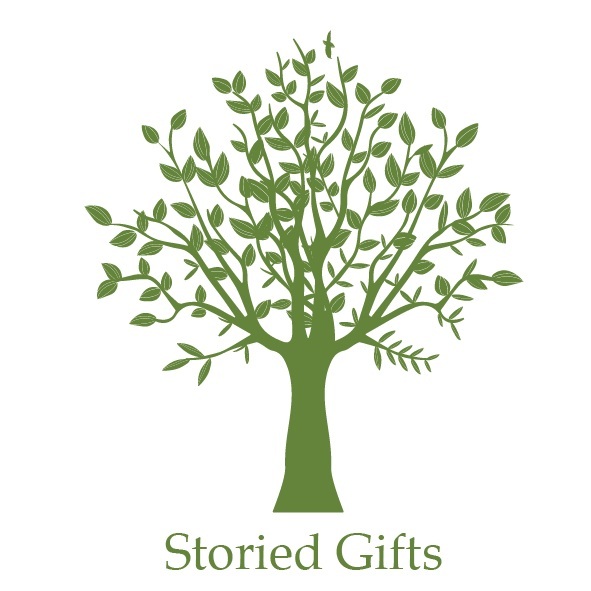How to Get Out of The Trap of Shame
Recycling shame holds you back from growth
Disclosure: There are some affiliate links below, and I may receive commissions for purchase made through the links in the post. However, these are products I highly recommend. I won’t list anything I haven’t tried and found personally useful.
Have you got a secret? Chances are you do – we all do. The reasons for the things we keep to ourselves certainly vary, perhaps the secret is something very private, or maybe it’s not only your secret, alone.
We may ditch our memories due to fear, pain of loss or shame, but in suppressing them they still churn through our thoughts. If this sounds familiar, this post is for you.
When my children were small, one bit of motherly advice I offered frequently, “You might lie to other people, but NEVER lie to yourself.” I still maintain this was essential counsel.
Lying (or avoiding) stories that elicit shame to yourself means you probably have some unresolved issues of that event. It’s important to settle the score with you so you can move from shame to growth.
A vital component of recalling your past is to assess it reasonably and fairly, acting as your own best advocate and try to maintain objectivity. This is where we can get lost.
Either we slay and judge ourselves for our human flaws and momentary weakness of character, or we omit and rationalize away past behavior when it’s just too overwhelming to acknowledge.
Interestingly – as with many messages we consciously impart on those close to us – I was sure my now-adult kids would remember me sharing that nugget of wisdom about being truthful with yourself. A quick check-in today, however, revealed they don’t recollect me saying it all!
Memories are stories reconstructed each time we tell them.
MEMORY AND COMMUNICATION ARE MOVING TARGETS
Their faulty recall (and mine, too) demonstrates how precarious communication can be. There is a disconnect between what we intend to say and what is heard and understood by others. Unfortunately, sometimes the thoughtless actions and words that we never planned to deliver, become lasting memories in the end.
Memory is the trickster, too. We don’t realize how deeply our memories, accurate or not, impacts us. We often reshape our past based on the stories we tell ourselves and others as we revisit them. And the stories that include others will multiply exponentially with everyone else’s versions.
Test the elusiveness of memory with family and friends with a story you have in common and see how different the same event is to each person. Even if you agree on most of the details, the feelings and import of the event will probably differ. The facts of our memories don’t matter so much as the emotions tied to them.
Each day you’re making your future self.
SHAME SUCKS IT OUT OF YOU
It’s your anxiety and shame about past painful events that can cause you the most harm. Stories that evoke loss and sadness are challenging, but those that bring back humiliation, and depreciate your sense of self-worth, are the most oppressive. And often they are the hardest to share.
The shame we recycle from painful stories or lapses of judgment does not account for who you were at the time and who you are now. We grow. We’re different people today, and hopefully wiser for our experiences. Reviewing hard stories and considering the circumstances is good – but give yourself the credit for your growth.
The distinction between feelings of shame and guilt is key in an assessment of our past. Per Scientific American, we feel shame when we recognize we have violated the social norms we believe to be true. When we feel ashamed, we direct our focus inward to view our entire self negatively.
In contrast, guilt opens us to see our impact on others. We relate empathically outward, recognize our actions, and work to make amends. This helps us move on.
SHAME IN OVERDRIVE
Shame serves an evolutionary purpose of helping to keep our species in check, part of forming functional societies. But being stuck in a reoccurring cycle of shame is not productive, and often means we are unclear about what exactly we regret.
The suppression of painful stories from the past isn’t so much a flaw, but a subconscious mechanism of survival. We are biologically designed to put some of the genuinely horrific memories behind us. For those who have post-traumatic stress disorder, their circuitry is not performing optimally to help them.
In a study featured on Nature, when people don’t recall a traumatic event, it’s due to the “memory control system (in particular, the dorsolateral prefrontal cortex) and memory circuits” going to work.
Any memory that initiates feelings of shame is traumatic, and frequent returns to shame about the past sucks the joy out of you. Understandably, our instinct is to put the feeling and the story in the rearview mirror.
But if we don’t confront the past and our feelings, that strategy will come back to bite us over time. That nagging thing we feel bad about becomes another memory we subconsciously harbor. The lie is that we try to tell ourselves we have gotten beyond the past, but it is just lurking there in your memories, forming a wormhole in our thoughts to emerge when we least expect it.
If we share our story with someone who responds with empathy and understanding, shame can’t survive.
SHIFT FROM SHAME TO RESPONSIBILITY
We live in a world of over-sharing where telling stories publicly has become popular. But you needn’t tell your painful stories to everyone to transition from shame to growth. Many find it beneficial to tell their painful stories to a professional to help guide them in finding meaning.
For others it can be enough to describe and interpret your stories on your own. You can do this with journaling, or you can engage in some audio storytelling just for your ears.
Begin by asking yourself what you want to accomplish from recalling and telling your story. This strategy helps you set a clear purpose.
For inspiration, I recommend listening to episodes of the podcast Heavyweight. The host Jonathan Goldstein is funny as he walks us through episodes where he helps people deal with unresolved issues from the past. The first question he asks them is what they hope to accomplish from revisiting the past.
DIFFICULT STORYTELLING PROCESS
Another complexity of telling difficult stories is that they often involve others. Sensitivity to their reality and feelings is important. You have a need to make sense of the past, but someone else involved may not feel the urge.
I learned this lesson when I dug up details about my childhood and genetic mother. I managed to find out information that was helpful for me, but made a broken relationship, forever severed. It was, I believe, an inevitable outcome.
If exploring a painful past event does require talking with other key people, start by being clear about your goal. Request a private time to ask your questions and explain what you plan to accomplish with reviewing a memory.
As you evaluate consider the following questions:
What do you want to accomplish from studying past pain?
Be clear about what scares you about the process. Name your fears and face them.
What does this event say about your childhood?
What does this event say about your relationship with others?
Who were you then versus now?
Claim your pain as your own and tell your story in your own words. Putting it out there for yourself, and perhaps others, allows you to begin shaping your story differently and gain some clarity.
Remember, you are human, and what you’ve done or been through is not you today, but a place where you were in the past. Having regrets for things you’ve done and said is human; your reflection and learning from them can help you to stop reliving shame and move forward.
Postscript: When things seem out of control like it feels these days, acting where we have control is a comfort. Cleaning up your stuff is within your power! If you need help getting going on organizing your home check out Get Organized Gal’s courses for support.
I used her course to organize my office, and it is in pretty good shape these days. Success in one space has lead to cleaning channels to other rooms and photos as well. Check out he courses here.
Sherry and Alexandra Borzo together in Lima, Peru
Sherry is the founder of Storied Gifts a personal publishing service of family and company histories. She and her team help clients curate and craft their stories into books. When not writing or interviewing, Sherry spends loads of time with her grandchildren and lives in Des Moines, Iowa.
STORIED GIFTS SHOP
Need a beautiful infusion of inspiration for your storied life? Please check out the Storied Gifts Shop where the theme is Words of Encouragement.
The shop is a mother and daughter venture for Sherry and Alexandra Borzo of Content In Motion. They both work to help their client's stories sing. The shop is their effort to inspire a focus on healthy minds for everyone through positive thought.
LET’S BE FRIENDS
Please like the Storied Gifts Facebook page. We offer tips and inspirations to help you tell your stories and live a storied life by harnessing your healthy mind through the power of the thoughts you choose.















